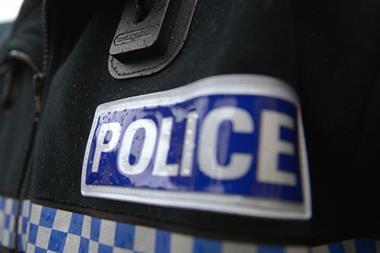High fuel prices have lead to a sharp rise in the number of motorists driving on empty and running out of fuel before they make it to a service station, according to a survey commissioned by roadside rescue organisation Green Flag.
The survey revealed a 40 per cent increase in fuel-related callouts in the second half of January, which coincided with fuel price rises during the same period, when fuel reached a record average of £127.87ppl.
Nearly half the British drivers surveyed had been dangerously close to empty or had broken down before reaching the pump at some point in their lifetime. Of that figure, 37 per cent of incidents occurred in the past three months. In the same time period, more than 30 per cent of drivers had reduced the time spent on the road in a bid to offset increasing prices.
Men were marginally worse than women with 49 per cent admitting to driving on empty or running dry at some point in their lifetime, compared to 45 per cent of women. The younger drivers, 18–34 year olds, were the worst offenders with 57 per cent of those surveyed having found themselves on their last drops of fuel or stranded at the roadside.
Drivers in Northern Ireland appear to be feeling the pinch of the price hikes, recording the worst track record, with 69 per cent driving on empty or running out of fuel completely.
In the past five years, petrol prices have risen by more than 30p per litre, placing strain on the pocket and leading to a significant change in driver habits.
Dan Robinson, head of Green Flag commented: “There is no hiding from the fact that the constant rises in fuel are affecting drivers nationwide. Almost half of those surveyed have driven on empty, with more than one third of these incidents taking place in the past three months. For most, driving is a necessity rather than a choice and despite government speculation about stability, high fuel prices are here to stay, placing pressure on the motorist’s pocket.
"We encourage motorists to become more vigilant about filling up to ensure they are not left stranded. It’s as simple as keeping an eye on your fuel gauge before setting off, no matter if it‘s a short trip or a long journey.”
In 2010 the average price of fuel was £111.49/litre, up 20p from the 2009 average. Throughout this twelve month period, Green Flag recorded a 7.6 per cent increase in fuel-related rescue calls.
Between October and December 2010, Green Flag noted a further increase of 18 per cent in rescue calls relating to fuel issues compared to the previous three months.
October 1st 2010 marked the eighth fuel duty price hike since March 2007, with fuel averaging 117.20/litre. By December the average price of fuel had risen again to 121.61p. Compared to January 2010, the cost of filling the average family car has risen from £78.04 to £89.51 – with more than half of this increase occurring in the past three months.
Results of the survey showed that motorists are now spending £25 on average on fuel per week. Back in November, £25 would have bought approximately 21 litres of unleaded fuel, while now it would buy around 19 litres which could cause drivers to run out of fuel without noticing.
In the past five years 31 per cent of respondents have decreased the number of short journeys they make by car, 40 per cent have decreased the number of long distance car journeys and 25 per cent are now using public transport more often.
Other changing driving trends revealed in the survey include:
· 58 per cent of drivers surveyed say that paying more money for the same amount of fuel has had the greatest impact on their driving habits
· As a result of the recent fuel price rises, 45 per cent of respondents have tried to drive more economically (eg avoiding heavy acceleration/braking)
· As a result of the recent fuel price rises, 6 per cent of drivers have purchased a more fuel efficient car and only 4 per cent of drivers have taken to car-sharing to combat the recent fuel price hike.
Chancellor George Osborne is facing increasing pressure to scrap the further planned fuel duty hike on April 1. Osborne told MPs this week he was looking at the planned fuel duty rise and the possibility of a stabiliser mechanism to smooth out spikes caused by rising oil prices. He is expected to be making an announcement in the Budget next month.






























No comments yet